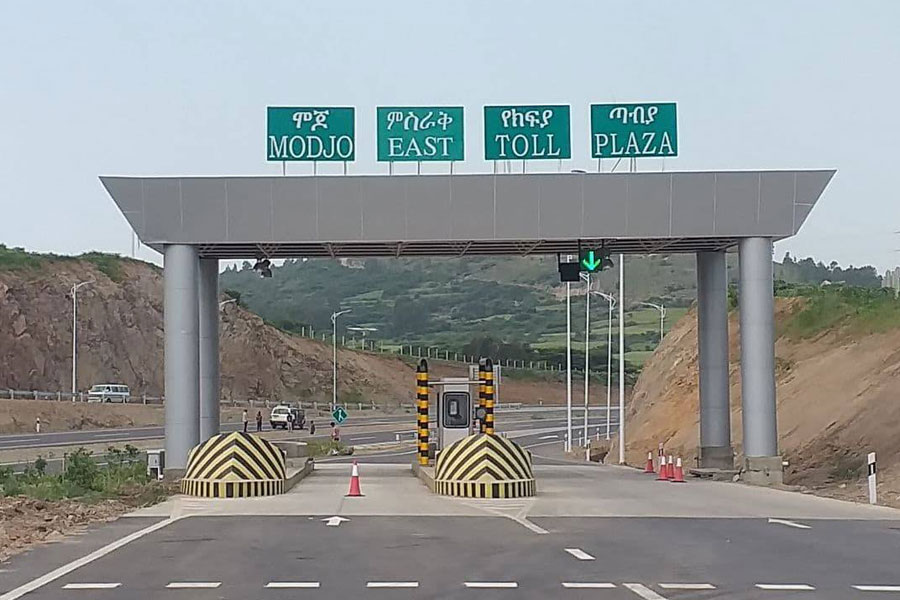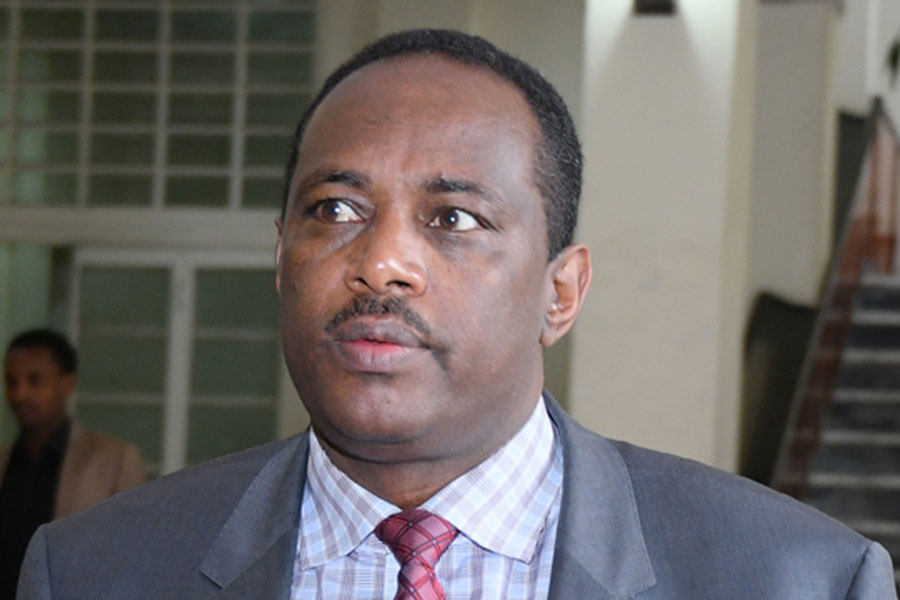
Radar | Mar 20,2021
Oct 19 , 2019
By Daniel Hailu (PhD)
Daniel Hailu (PhD) (ethiopianmindset@gmail.com), is senior child/ social protection consultant and researcher at Litmus Research and Consultancy Plc, curator of (www.ethiopianmindset.com).
The National Education Policy of Ethiopia aspires to be relevant to Ethiopians. The Glossary of Education Reform defines relevance in education as “learning experiences that are either directly applicable to the personal aspirations, interests, or cultural experiences of students (personal relevance) or that are connected in some way to real-world issues, problems, and contexts (life relevance).”
Having passed through Ethiopia’s system of education from first grade through graduate school, I would comfortably declare its content to be mostly irrelevant if I were to base my judgement solely on that experience. However, to test if my personal lifetime observation is also true for other Ethiopian communities than the one I grew up in, I conducted an anthropological case study among the inhabitants of Woyisso-Qancaara - a predominantly Muslim rural community of East Showa Zone of Oromia Region.
Although the study was conducted in 2003, its implications for how we should envision our system of education as part of Ethiopia’s reform is stark. I stayed with the community at a particularly difficult time when immediate survival was at stake: land was becoming increasingly fragmented. The rain had been erratic and unreliable. Members of the community were increasingly migrating to the nearby rural towns in search of jobs. Parents were beginning to send their kids to school in the hope that their kids would get jobs in towns upon completing high school. This motive had brought the community in unprecedented interaction with formal education.
One of my study questions was as to where formal education and the community stood on beliefs and other values that matter perhaps more to the people if issues of the daily meal were not at stake. Underlying the people’s view of and relationship among themselves and with their natural environment was a belief in the existence of a supernatural being they referred to as waaqa or Allah. They also believed that they were made of body and the soul, which they referred to as ayaana.
These beliefs were fundamental to the people. Unfortunately, formal education did not teach anything about the supernatural. By omitting issues of belief, however, it subtly taught another form of belief called disbelief or atheism. Is the worldview underlying Ethiopia’s educational policy sensitive or relevant to the beliefs of the community?
The simple answer was no.
The other study question is if formal education relates in any way to the community’s moral values. One would agree that if education were relevant to a people, it would help them achieve their ideals. I asked several parents to describe their ideally fulfilled person. Among the recurring descriptors they used to characterise a fulfilled person were truthful, hospitable, kind, generous, altruistic and observant the five pillars of Islam. Similarly, when I asked them to describe a successful student, they said, a good student was clean, wise in addressing social issues, obeyed and respected his parents and elders, and demonstrated a capacity to mediate disputes and reconcile differences. Does education empower the community to achieve these ideals?
Again, no.
Let me interject a story that illustrates these differing expectations parents and schools held regarding educational outcomes of students. The story was of a junior high school boy I refer to here as Ahmed. Ahmed was introduced to me by his teacher as an outstanding student. He scored the maximum grade in all the subjects he took. I had already established a degree of intimacy with his parents as he was from the village I was working with. His parents rented a room in the nearby town of Adami Tulu so that he could stay there to go to the only junior high school in the woreda at that time. The next time I visited the village, I made sure to visit and congratulate his parents on the good performance of their son. I was very struck when they reacted with a very grim face. They later told me that they thought I was being sarcastic.
They had been very unhappy with Ahmed’s behaviour. They said the language he had been using to address them and his elder siblings had grown insolent and despising. He preferred to stay in the town and would never visit them if it were not for the economic support he needed. Even when he visited them, he would not perform any of his former household responsibilities. All he did is bury his head in his books. On the other hand, his demands had increased without any consideration of their capacity and priorities. All these had made them lament that the school and the town he stayed at had spoiled their son who once was very respectful, obedient and highly supportive.
For parents, the essential element of education was the development of the qualities they enumerated. I asked them why this was important to them. Part of their answer was the qualities would make Waaqa happy, who would then bless the person and his or her kin. What then did these values mean to the education policy: Are they its central or even peripheral objectives?
Again, the simple answer was no.
Yet another study question asked if formal education considered the community’s day-to-day economic activities. Did it from early on help them analyse and transform the animal husbandry and horticulture they practised? Did it help them appreciate and expand the wisdom behind these practices?
The ugly truth was once again no. if education did so, it would have built the problem-solving capacity of students as the education policy hoped it would, thereby helping them resolve the alarming survival challenges their communities were facing at the time of the study.
Parents invested their meagre resources on the education of their children in the hope that their children would not only be economically self-sufficient but also support them during old age. Sadly, the majority of them ended up accruing negative returns on their investment as formal education removed their children from the local economy and ill-prepared them for getting employment for themselves in the towns.
I concluded that study, “Some Implications of the Interaction of Formal Education with Rural Communities in Ethiopia: The Case of Woyisso-Qanchaara Kebele, East Shewa Zone of Oromia Region”, which was published by Addis Abeba University in 2007, by observing that formal education, as it was organised in Ethiopia at that time, was mainly alienating students from their religious, cultural and economic values and fueled their migration to urban areas that were not creating enough jobs and infrastructure to accommodate them.
I also predicted that if the way education was organised in Ethiopia remained the same, it would contribute to social and economic crises in towns and stagnation or deterioration of life in rural areas. About 20 years later, education remained essentially the same and is giving expression to that prediction.
Unfortunately, Ethiopia’s Education Development Roadmap (2018-2030) romanticizes and plans to take us back to where formal education was in 2003 or earlier. I admit that our education has significantly declined over the past two decades in term of enabling students to read and write and regurgitate scientific facts and has, therefore, ill-prepared them to be minimally competent for available jobs in urban centres.
However, its fundamental philosophy has remained unchanged. In fact, to say Ethiopia’s system of education has an educational philosophy is inaccurate, since none of Ethiopia’s regimes articulated an official statement that I know of that engages in a philosophical analysis of the goals, forms, methods and meaning of the education system Ethiopia would promote. Perhaps a collective articulation of such a statement should be the first step in any attempt at reforming Ethiopia’s system of education, which the road map mentioned above lamentably overlooked.
PUBLISHED ON
Oct 19,2019 [ VOL
20 , NO
1016]


Radar | Mar 20,2021

Radar | Aug 04,2024

Fortune News | Mar 19,2022

Agenda | Jun 29,2025

Commentaries | Jan 16,2021

Viewpoints | May 14,2022

Radar | Sep 21,2019

Fortune News | Jun 15,2024

Radar | Dec 25,2023

Agenda | Mar 21,2020

My Opinion | 131466 Views | Aug 14,2021

My Opinion | 127818 Views | Aug 21,2021

My Opinion | 125799 Views | Sep 10,2021

My Opinion | 123434 Views | Aug 07,2021

Dec 22 , 2024 . By TIZITA SHEWAFERAW
Charged with transforming colossal state-owned enterprises into modern and competitiv...

Aug 18 , 2024 . By AKSAH ITALO
Although predictable Yonas Zerihun's job in the ride-hailing service is not immune to...

Jul 28 , 2024 . By TIZITA SHEWAFERAW
Unhabitual, perhaps too many, Samuel Gebreyohannes, 38, used to occasionally enjoy a couple of beers at breakfast. However, he recently swit...

Jul 13 , 2024 . By AKSAH ITALO
Investors who rely on tractors, trucks, and field vehicles for commuting, transporting commodities, and f...

Jun 28 , 2025
Meseret Damtie, the assertive auditor general, has never been shy about naming names...

Jun 21 , 2025
A well-worn adage says, “Budget is not destiny, but it is direction.” Examining t...

Jun 14 , 2025
Yet again, the Horn of Africa is bracing for trouble. A region already frayed by wars...

Jun 7 , 2025
Few promises shine brighter in Addis Abeba than the pledge of a roof for every family...

Jun 29 , 2025
Addis Abeba's first rains have coincided with a sweeping rise in private school tuition, prompting the city's education...

Jun 29 , 2025 . By BEZAWIT HULUAGER
Central Bank Governor Mamo Mihretu claimed a bold reconfiguration of monetary policy...

Jun 29 , 2025 . By BEZAWIT HULUAGER
The federal government is betting on a sweeping overhaul of the driver licensing regi...

Jun 29 , 2025 . By NAHOM AYELE
Gadaa Bank has listed 1.2 million shares on the Ethiopian Securities Exchange (ESX),...